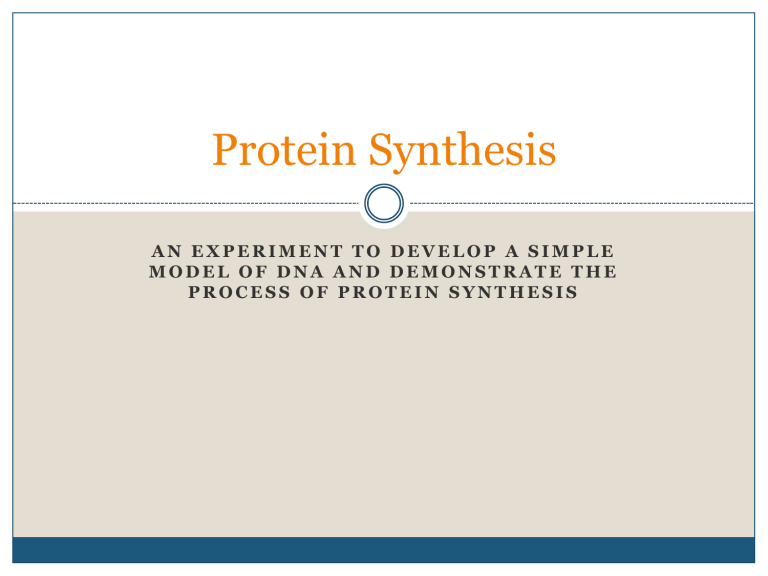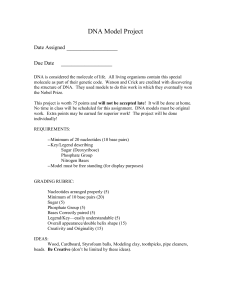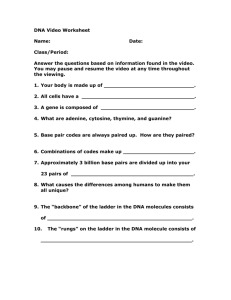Protein Synthesis - Jannali

Protein Synthesis
A N E X P E R I M E N T T O D E V E L O P A S I M P L E
M O D E L O F D N A A N D D E M O N S T R A T E T H E
P R O C E S S O F P R O T E I N S Y N T H E S I S
DNA structure
DNA is a double strand of nucleotides found mainly in the nucleus .
Nucleotides are made up of a sugar, a phosphate group and a nitrogen base ( either adenosine, thymine, cytosine or guanine ). They form complementary pairs as A only joins with T and
G only joins with C.
Alternate sugar and phosphate form the sides
(like rungs in a ladder)
Guanine
Thymine
Cytosine phosphate sugar nucleus
Adenosine
Protein Synthesis
The genetic information carried on DNA directs the production of proteins. Proteins are made up of one or more polypeptide chain. These polypeptide chains are made up of a linear sequence of amino acids joined by a peptide bond.
Materials
•
•
•
•
•
•
•
•
•
•
•
•
•
42 tooth picks representing the bonds between the chemicals
18 milk bottle lollies cut in half (36 halves) representing sugar
18 raspberry lollies (36 halves) representing phosphate units
25 jelly beans halved (5 each of 5 colours) representing bases
4 different jelly snakes 6cm long representing amino acids
A4 white paper representing a cell
Coloured paper circle, 6cm diameter, representing a ribosome
Clean sharp knife
Cutting board
Gloves
Scissors
Marking pen
Heinemann Biology textbook
The RNA polymerase binds to the prometer.DNA
‘unzips’ in the nucleus
Transcription of the gene occurs (controlled by
RNA polymerase). DNA acts as a template to create a single stand of complementary mRNA.
Uracil replaces Thymine the base found in DNA.
Uracil
mRNA moves out of the nucleus and into the cytoplasm where the ribosomes are present.
Translation: the ribosomes move along the mRNA molecule temporarily paring bases of tRNA anticodons with their complementary triplets of mRNA bases.
The amino acids are linked together by and enzyme to form a polypeptite chain .
Polypeptite chain
They then leave their tRNA carriers.
The chain may be joined with one or more other polypeptites. It folds into its correct shape which is needed for its particular function forming a protein .
protein


